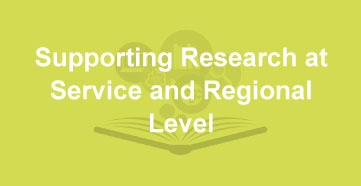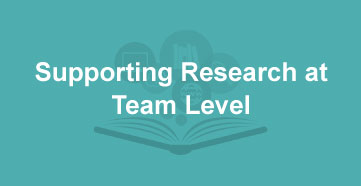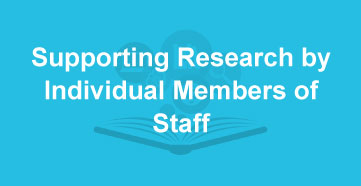Creating a Research Culture within Teams
As Managers and Supervisors YOU are the principal agents who can work with your staff to promote research and information use at all levels of the organization and see it as a cornerstone of practice.
Download the leaflet, How you as a Manager and/or Supervisor can help develop Tusla’s Research Culture
Supporting Research at Service and Regional Level
Strategies can include;
Plan Events | Invite academics and a range of other speakers to talk to your staff about specialist topics of interest and to demonstrate how easy it is to embed research into practice. Check in with National Research Office staff who liaise with all the academic institutions in the country here |
Identify Knowledge Gaps | How can these be brought to the surface and what steps need to be taken to address these? And by whom? Check out this link for advice |
Share the Knowledge | Is a member of staff interested in and possess specialist knowledge on a given topic? Encourage them to write for the weekly Research Corner and share with the organisation as a whole. |
WFLD National Strategy for Continuing Professional Development | Tusla’s National Strategy for Continuing Professional Development provides both a CPD cycle and framework, both of which from a personal as well as service based level, provide the essential tools and dispositions to see research as an activity that can successfully be embedded within practice. Tusla defines CPD as a mechanism to:
|
Information Sessions to Team Leaders and Senior Managers | Short, but well planned sessions/spaces to discuss challenges, strengths and opportunities as well as needs. |
EPPI Toolkit | Ask how can the EPPI toolkit be applied to ensure that all practice is based on the best available evidence. Access the EPPI toolkit here |
Supporting Research at Team Level
Strategies can include;
Team Meetings and Case Conferences | Bringing the latest evidence to the table and assessing its contextual value and application |
Communities of Practice | Seeing how this established knowledge sharing and exchange process can encourage network development, offer support, build confidence and share professional expertise
For example, see |
Case Studies / Group Supervision | Opportunities to share practice wisdom and learning wherever and whoever it comes from |
Learning from missed opportunities | Creating a safe and secure space to admit to such opportunities and achieve personal and team based growth from the experience |
Journal Clubs | Before and after the Team Meetings and the Case Conferences, the place, both physical and virtual, to search for and examine the most recent peer reviewed, published evidence. For example, Tusla Learning into Practice Group on LinkedIn |
Supporting Research by Individual Members of Staff
Tusla Open Athens User Names and Passwords | Actively encourage all staff to register for a Tusla Open Athens account. Sign up at https://register.openathens.net/tusla.ie/register |
Register for Tusla Library and Information Service | Actively encourage all staff to register. Sign up at |
Complete online electronic searching tutorials | …to develop database search skills. These can be accessed at https://www.tusla.ie/research/databases/database-tutorials/ |
Make Research Activity | …a mandatory element of supervision discussion. Bring your evidence to the table and discuss with your Supervisor |
Professional Development Plans | All professionals need to admit to the need for constant growth and development – and in the midst of the pressures of the workplace, a plan is normally the only way to ensure it happens.
Have you considered CPD points to be gained from this activity? See the CORU website for more |
Make sure that practice is always informed by the most recent evidence | …through individual goal setting in caseload management and ensuring that the inclusion of such evidence is explicit and sourced. |
Review research and information resources | …to support and/or strengthen assessments, safety plans and court reports. |
Weekly and Daily Evidence Reminders | Have you signed up to Journal Contents Alerts and to RSS Feeds for the most valuable evidence sources for yourselves? |



